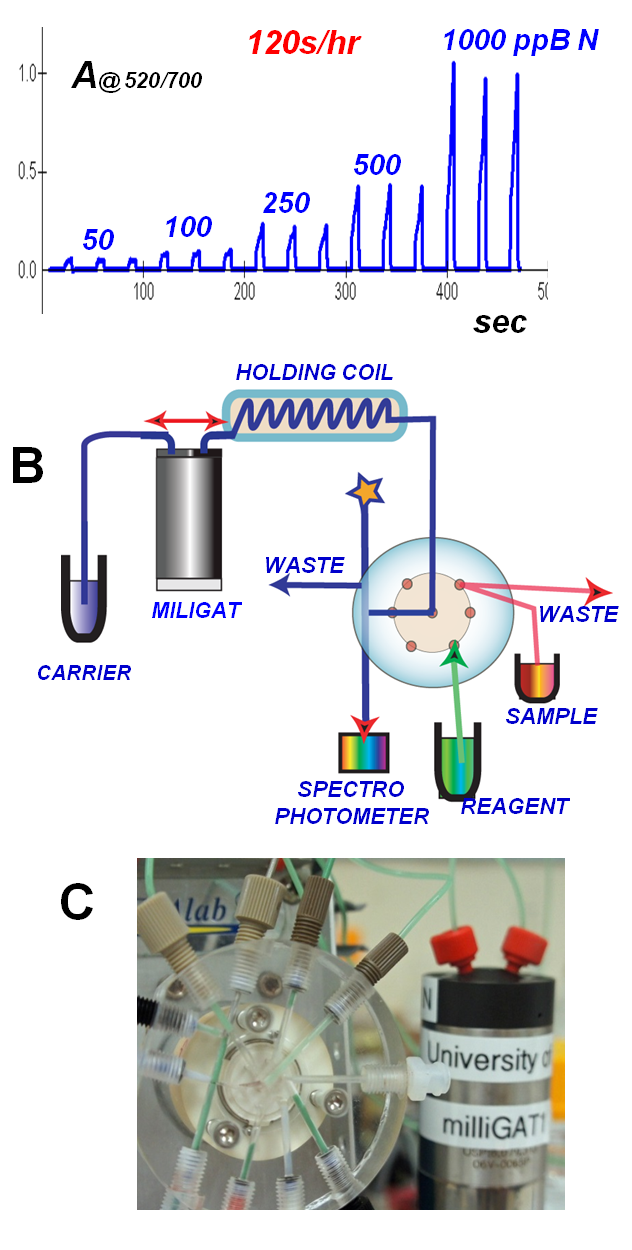It is generally accepted that SI can not match the sampling frequency of FI, which is the reason why serial assays are always carried out in flow injection format. Yet as shown here, for the first time (A), this is no longer the case, although admittedly the assay chosen for this example is based on very fast chemical reaction. However, should this prove a more widely acceptable modus operandi, the next generation of flow based assays may very well be based entirely on SI concept.
Optimizing system for a high throughput, required resolving the following issues:
- minimizing volume of the flow path
- replacing the conventional syringe pump
- minimizing timing flaws of available software
The volume of the flow channel in the “lab-on-valve” system is already minimized, since it comprises;
- volume of channel between the central port and flow cell (5μL)
- volume of 1 cm long flow cell( 5μL) note green PEEK insert in the flow cell (C).
- combined volumes of sample and reagent (Sv 50μL+Rv 25μL)
Conventional syringe pump, which must be refilled at the beginning of each sampling cycle
was replaced by four piston Miligat that refills continuously (B,C).
ACCELERATED SI
2.2.15.
While this experiment confirms that SI can achieve a high sampling frequency it should be noted that the assay protocol was designed to take 13 seconds, yet the actual run took 30 second to complete. This delay is due to flaw in FIAlab for Windows software which, pauses between individual operations of the assay protocol.

A









